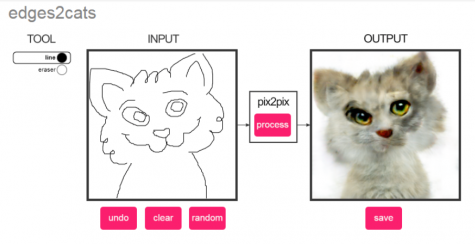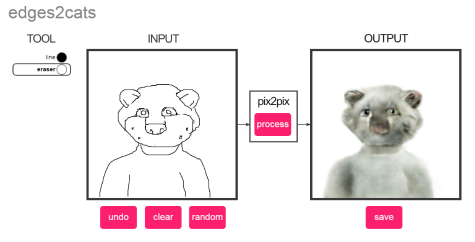Why you should learn basic business concepts regardless of your major
The economy is sailing into unchartered waters. Have a lifeboat ready.
To get yourself into the right mood for this article, listen to this composition by artist Emily Howell. A good word to describe it is “mysterious,” or perhaps “ambiguous.” Is it supposed to sound ominous? Adventurous? Is the mood of the song supposed to be positive or negative? Whatever the case, it definitely fits the vision of a ship sailing into unchartered waters. We’re sailing towards a mysterious economic future. Will automation create new jobs as it has in the past, or will it get so sophisticated during our lifetimes that it destroys more jobs than it creates? Is globalization ultimately to our benefit, or will it ultimately lead to endless instability?
At least there are some skills that can’t be automated. Any Riverpark students reading this can rest assured that while robots may eventually replace jobs that follow rules of logic, such as computer programming, they can never perform artistic creativity. Right? Howell’s song showcases the arational complexity of the human soul. It’s emotional. It’s illogical. It’s beautiful. Howell speaks the universal human language of music. She knows how to play YOU with every note. People like her may have to work hard for their money, but at least they’ll never be replaced by robots. Right?
Actually, Howell is a robot, and she composed that piece way back in 2007. Google “David Cope Emily Howell.”
It’s possible that we have supernatural souls, but our brains are machines that work in patterned ways. Cope created algorithms based on famous composers that allowed his computer program to compose songs that sounded like theirs. Here is such a song in the style of Bach, here is one in the style of Vivaldi, here is one in the style of Beethoven, and here is one in the style of Chopin.
Even for visual art, things are getting freaky.

Aww, it’s almost not creepy!

Cody gets creepy.
Caption: Cody gets creepy. Doodle by Cole Trahan, computer rendition made here
And theater majors, may I introduce you to the rapidly evolving technologies of deep fakes and extremely realistic CGI? And to anyone considering a career in law, IBM’s Watson can debate. It also plays a mean game of Jeopardy.
These are strange times we’re living in. Hard work is a part of our American ethos. John Smith famously told settlers in Jamestown that if they didn’t work, they wouldn’t eat. Our politics echo with work-related rhetoric. Welfare recipients are accused of choosing not to work. Immigrants are accused of “taking our jobs.” We college students are studying ourselves silly in hopes of getting good jobs. Now, universal basic income is gaining popularity as a solution to the irreversible, widespread unemployment that some are predicting as a consequence of artificial intelligence.
Technology is making living-wage jobs more elusive. When people are desperate for jobs, they put up with inferior treatment, and inferior treatment becomes the norm. People work harder and longer for less pay. They tolerate more disrespect. They let others violate their personal boundaries. Unemployment is one thing. Sacrificing freedom and authenticity to beat the competition is another. While I intend to pursue a traditional job, I also intend to design a lifeboat of two or three small income sources that I can grow into larger ones if the going gets tough.
Rich people think of making money as a strategy game. A book that had a big influence on me was “Rich Dad Poor Dad” by Robert Kiyosaki. I highly recommend it, apart from when Kiyosaki tells you to pay yourself before you pay your bills. He outlines how rich people and poor people think differently about money. Most of us college students, possibly aside from business majors, are following Poor Dad’s line of reasoning. We’re preparing ourselves to work for others. Rich Dad looks for whom to hire. Poor Dad works hard for his money, and Rich Dad’s money works hard for him.
It would be nice if wealth were strictly a proportionate reward for your contributions to society, but that isn’t how it works. An economy is an unintelligent, yet organized system, like evolution, that people can manipulate for their benefits. People who know how to work the system set up money-making machines. When you work for someone else, you are a component in someone’s money-making machine. There’s nothing wrong with that setup. I personally like it when someone else is liable for a business and I just work for it. But regardless, you can make your own money-making machine.
Two key concepts for any potential business owner to understand are assets and liabilities. Rich Dad defines an asset as anything that makes you money. He defines a liability as anything that loses you money. What Rich Dad recommends is keeping track of your assets and liabilities in order to keep track of your cash flow — if you want to get rich, you should have more money coming to you than leaving you.
Leaving “Rich Dad Poor Dad” behind, marketing is another concept you should have a basic understanding of. People need to be aware of your product or service before they can buy it. You need to figure out marketing methods that aren’t illegal, unethical, or obnoxious. You need to be aware of trends. Something called inbound marketing is a trend right now. Basically, instead of you throwing yourself at potential customers (ahem!), you set up something that leads potential customers to you, such as a blog.
And then, with all the possible businesses you could create, the hardest part of starting a business might be settling on an idea and sticking to it. It’s never too early to start daydreaming about what you could do. As time goes on, and you keep daydreaming, and you keep Googling, a clearer picture should start to emerge in your head. To begin with, think about your personality. Your business should at least be compatible with who you are. The great thing about designing a business is that you can you can build it around qualities that employers look down on, such as laziness. If you are a lazy bum at heart, get started by researching passive income. If you already have some sellable skills, you can narrow down your options further. Don’t discount skills that are common. Tutors and babysitters seem to always be in demand. With your options narrowed down, study business avenues that pique your curiosity. Know how much you don’t know so you can learn what you need to learn. When you come across a business avenue that you actually enjoy studying, you’re on the right track.
By being a business owner, you can make artificial intelligence work tirelessly for you so you don’t have to work tirelessly for someone who’s thinking about laying you off. Figure out how to run a quality business as efficiently as possible with computer programs and machines. The automated journalism technology that could otherwise be my downfall could also enable me to write a formidable blog, which could be a source of ad revenue or even an inbound marketing strategy for something I’m selling.












